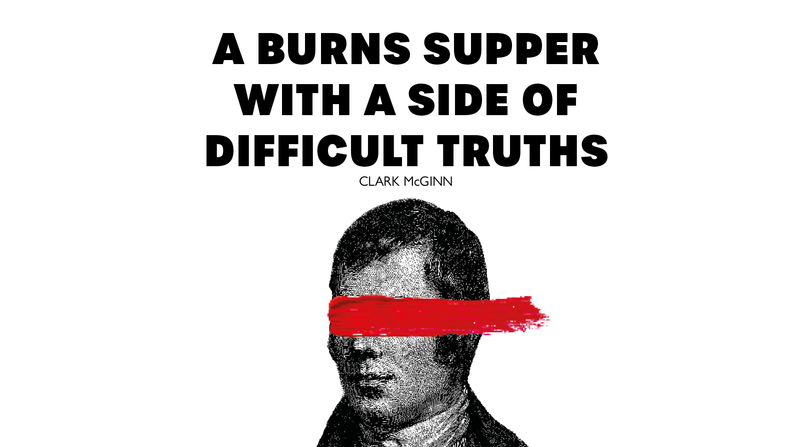A Burns Supper with a Side of Difficult Truths
A Review of Burns and Black Lives

A Review of Burns and Black Lives

This review is part of our ongoing series of in-house reviews, showcasing how passionate we are about the books we publish.
Burns Night is upon us, a time for haggis, whisky and celebrating the life and poetry of Scotland's national bard, Robert Burns. But this year, consider supplementing your traditional supper with a dose of uncomfortable history. Clark McGinn's Burns and Black Lives offers a timely and much-needed re-examination of the poet, grappling with the uncomfortable truths of his connection to the transatlantic slave trade.
McGinn doesn't shy away from the difficult questions: Would Burns "take the knee" today? How could a poet so beloved by the people become entangled in a system of such profound injustice? Did Burns understand the full implications of his potential involvement in the slave trade, and did it influence his decision to emigrate to Jamaica? And how was Burns' image and legacy used, both during and after his lifetime, in the fight for abolition and emancipation?

Through meticulous research, McGinn paints a nuanced portrait of Burns, acknowledging his genius while confronting the ethical ambiguities of his time. This isn't a book that seeks to understand Burns within the context of his era and to challenge us to reconcile his literary legacy with the realities of his involvement in a system of oppression.
Burns and Black Lives is a thought-provoking read that transcends the typical Burns Night fare. It's a call to examine our own history critically and to confront the uncomfortable truths that lie beneath the surface of our cherished traditions. Whether you're a lifelong Burns enthusiast or simply curious about the complexities of Scottish history, this book offers a valuable and insightful perspective.